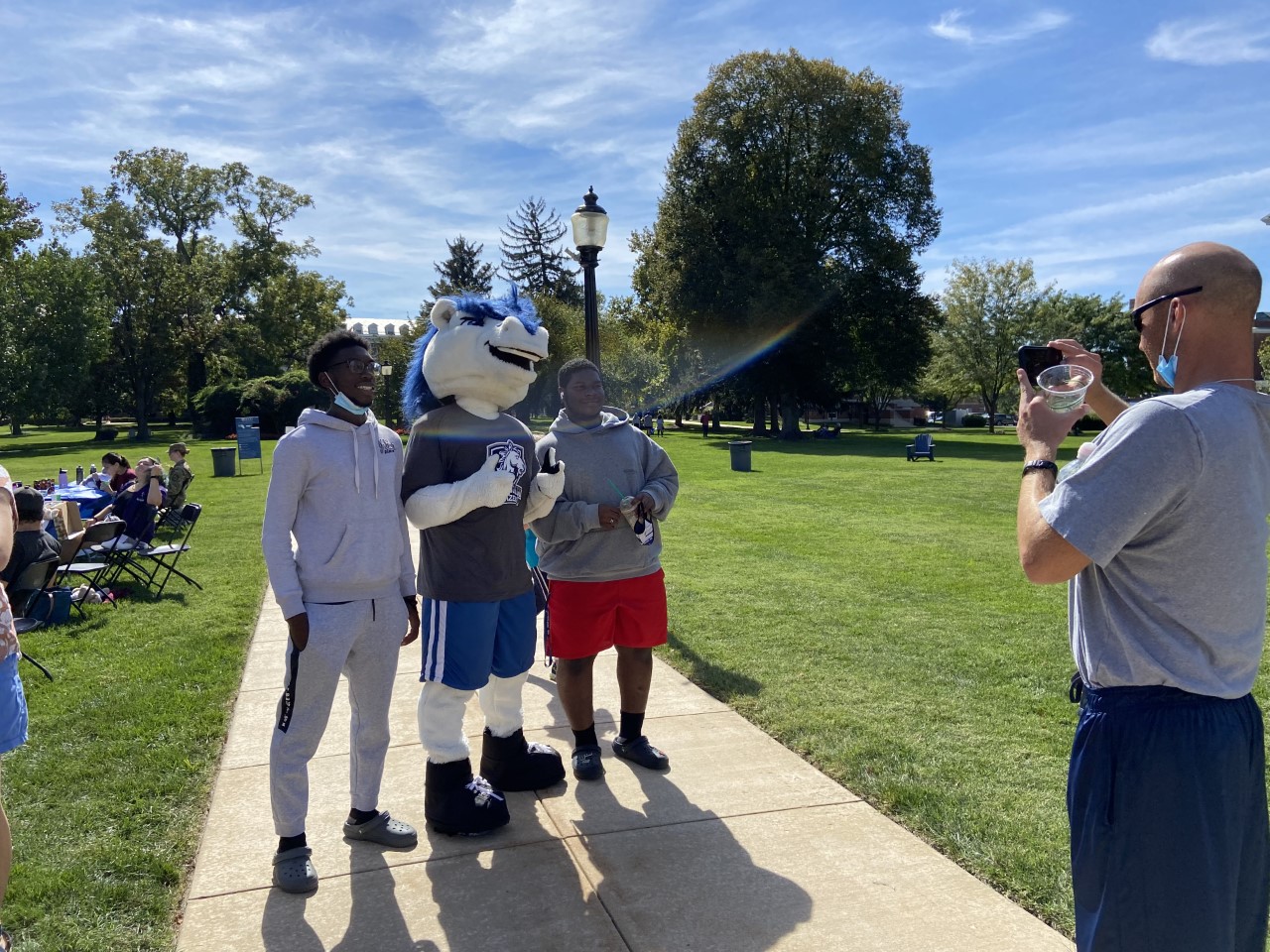By Cameron Rogers
Hood College professor Dr. Purnima Bhatt held a reception for her latest book on Tuesday, marking both the release of her third book and the conclusion of her last year teaching at the college.
The book is entitled Her Space, Her Story and it focuses on the relationship between women, water, religion and architecture in India, all through the common motif of stepwells.
Unlike most wells, stepwells have ornately-designed staircases that allow people to walk into their recesses for water. Like many other Indian designs, the walls of stepwells are adorned with images of gods and goddesses.
The reception began at 12:30 p.m. with light refreshments and an opening speech by Dr. Kiran Chadda, the head of Hood’s multicultural affairs office.
“Dr. Bhatt does not need an introduction,” Dr. Chadda said. “She is one of our favorite professors on campus.”
Throughout the reception, Dr. Bhatt described the results of 10 years of research on the topic, during which she connected recurring themes that would arise. The most common was that of the stepwells as a “women’s space” where the disenfranchised could meet and talk about their lives.
India has been a traditionally male-dominated society, from when the stepwells were constructed thousands of years ago to today. However, stepwells provided an escape for women, right down to the female-centered artwork on its walls. In fact, nearly one-fourth were built by women.
“The art of the stepwells looks past the patriarchal designs of Hindu art,” Dr. Bhatt explained. “The feminine principle is celebrated in stepwells. This is not about the male gods of Hinduism, but the females.”
Dr. Bhatt presented a slideshow of images of stepwells while she spoke. Pictures ranged from women balancing pots on their heads on their way to wells, to the carvings on the stepwells’ walls, to the current state of the wells themselves.
In the British colonial era, the wells were closed for fear of the potentially-unsanitary water spreading disease. They fell into disuse until recent years, where women have refurbished the locations and reclaimed them as their space once more.
On the current state of the wells, Dr. Bhatt said, “The stepwells are gone. They are not being used for water any more, but women are reclaiming them.”
The presentation tied into Women’s History Month, which occurs every March. The theme of the 2015 celebration is called “Weaving the Stories of Women’s Lives.”
“I think that, even though it is in the 21st century,” Dr. Chadda said, “it is important to have reminders that equality is important.”
Dr. Bhatt concluded her speech and asked for questions at 1:30 p.m., and signed copies of her book. Her two other books are a guide on African Studies in Washington, D.C., and the memoirs of her late grandmother, who introduced her to the world of stepwells.




Be the first to comment